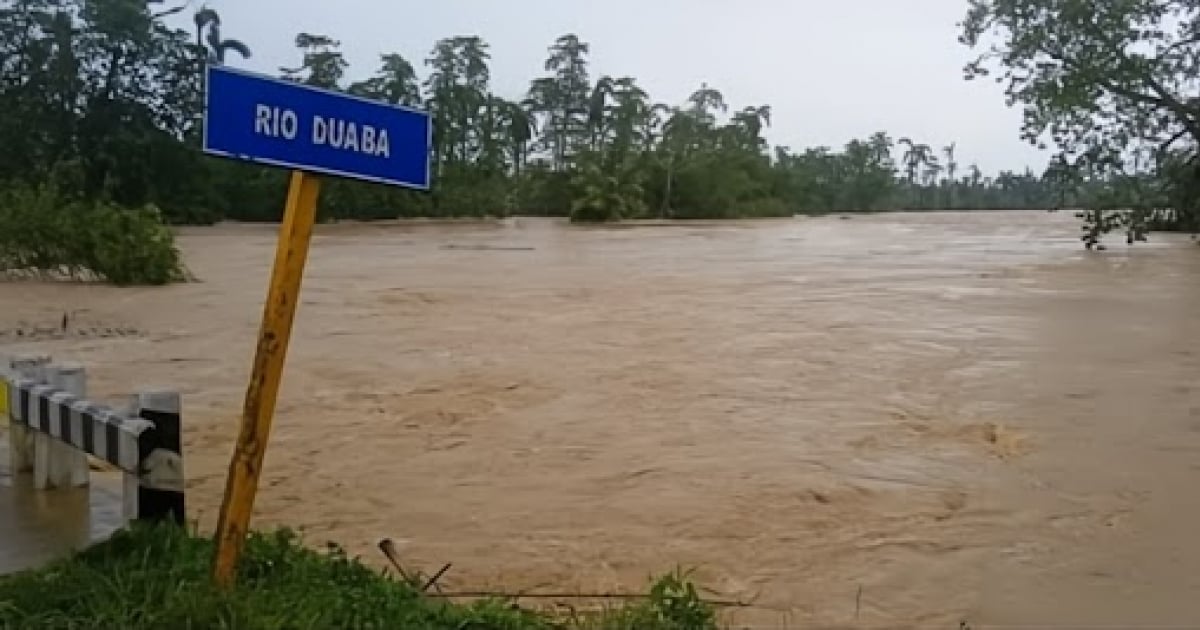
The testimonies collected by the residents and neighbors of the most affected areas, such as San Antonio del Sur, Imías, and San Ignacio, explain to us what they believe have been the main mistakes made, which could have prevented the crisis currently being experienced in the area and the victims left by the disaster. These local voices provide a clear and direct perspective on the missteps that have worsened the situation, offering an honest account of what was experienced during and after the hurricane's passage.
- Lack of electricity and communicationThe affected communities went days without electricity and without knowing anything about the situation, which generated uncertainty. There were no quick efforts to restore communication, leaving many people in very precarious conditions. The blackout on the 18th caused a disconnection that affected the ability to communicate and respond, making it difficult to coordinate emergency actions and aid to the communities.
- Lack of communication and adequate equipmentthe inability to activate the "defense council" due to a lack of electricity and the absence of radios was a major problem. The radios would have allowed communication without relying on electricity or the internet, facilitating coordination between different points such as the dam, the mountain, and the town. Due to "poor management of the direction," the necessary equipment was not available, which prevented notifying the population about the seriousness of the situation, saving lives, and coordinating an appropriate response. As a result of this lack of communication, many people "did not know what was happening."generating a disorganized and chaotic response, in which those who could tried to move to higher places without having a real understanding of the riskPlease provide the text you would like me to translate.There were people who drowned inside their homes.It appears there is no text provided to translate. Please provide the text you would like me to translate.
- Poor fuel managementThere was not enough fuel to reach the affected communities or to send vehicles to warn people. This limited the ability to act quickly and ensure that the population was alerted and assisted in time, worsening the situation in remote communities.
Poor management and delays in food distribution: there was poor handling of the stored rice, which caused some food to spoil due to the lack of timely distribution. This happened at a time when the community was experiencing hunger, worsening the situation. Additionally, the rice from September is still owed, and by October, the distribution remains delayed, affecting the availability of this staple food in the community. These delays contribute to the problems of food distribution and management, creating a situation of food insecurity.
- Lack of knowledge of geography, adverse natural effects, and error in weather forecasting.There was a poor forecast regarding the rain, indicating that it would be "apparent" and that there would be no danger, which affected the perception of the severity of the situation. However, the geographical characteristics of the region worsened the impact of the hurricane. The mountains of Guantánamo, being "cloud harvesters," favored condensation and the formation of intense rainfall. Additionally, the presence of normally hidden underground rivers emerged due to the rains, contributing to flash floods, especially in a clay and muddy terrain that did not allow water infiltration. The combination of these natural factors caused the Pozo Azul dam, which was at 40% of its capacity, to fill up in a matter of hours and overflow, intensifying the effects of the floods in the region.
- Rigid state controlThe aid is "controlled by MININFAR" (Ministry of the Interior and the Armed Forces), which has complicated the direct delivery of supplies to those in need. This control has made the process slow and many people do not receive assistance in a timely manner.
- Loss of crops and livelihoodsMany families have lost their crops and, although they try to keep working, they have no electricity or necessary resources to continue. This affects the economic recovery and food security of the region.
- Inadequate management of the disappearedIt is mentioned that there are missing persons and that the search depends on the information from community members and the "popular power," rather than an official and systematic search.The official figures are not reliable.
- The role of social media and personal management over that of the government.People who have been able to help during the situation have posted photos and communications on social media, making this "more effective overall" than television, which was even off the air. People took the initiative while the government was "so lost," reflecting the perception that the government has not been up to par with the situation.
- Difficulties in reaching those affected.Many refugees in the mountains had to leave their villages at the last minute, and they are not being reached with the necessary aid. This indicates the authorities' inability to adequately assist the more remote areas.
- Lack of resources and organization for distributionThe distribution of aid, such as gallons of water and food, depends on individual efforts and local groups, not on a government organization. The scarcity of resources and the lack of coordination have made the distribution of aid fragmented and inefficient.
The humanitarian crisis in Guantánamo following the hurricane has revealed the inefficiency and mismanagement of the government. The centralized control of aid, lack of planning, and absence of adequate resources and equipment have worsened the situation. The slow distribution of food, mismanagement of fuel, and disconnection from the real needs of the population have left Guantánamo in an avoidable crisis. The reliance on individual efforts and social networks as the main source of aid highlights the lack of government leadership and preparedness, exposing the population to unnecessary risks and a more severe disaster.
What do you think?
COMMENTFiled under: